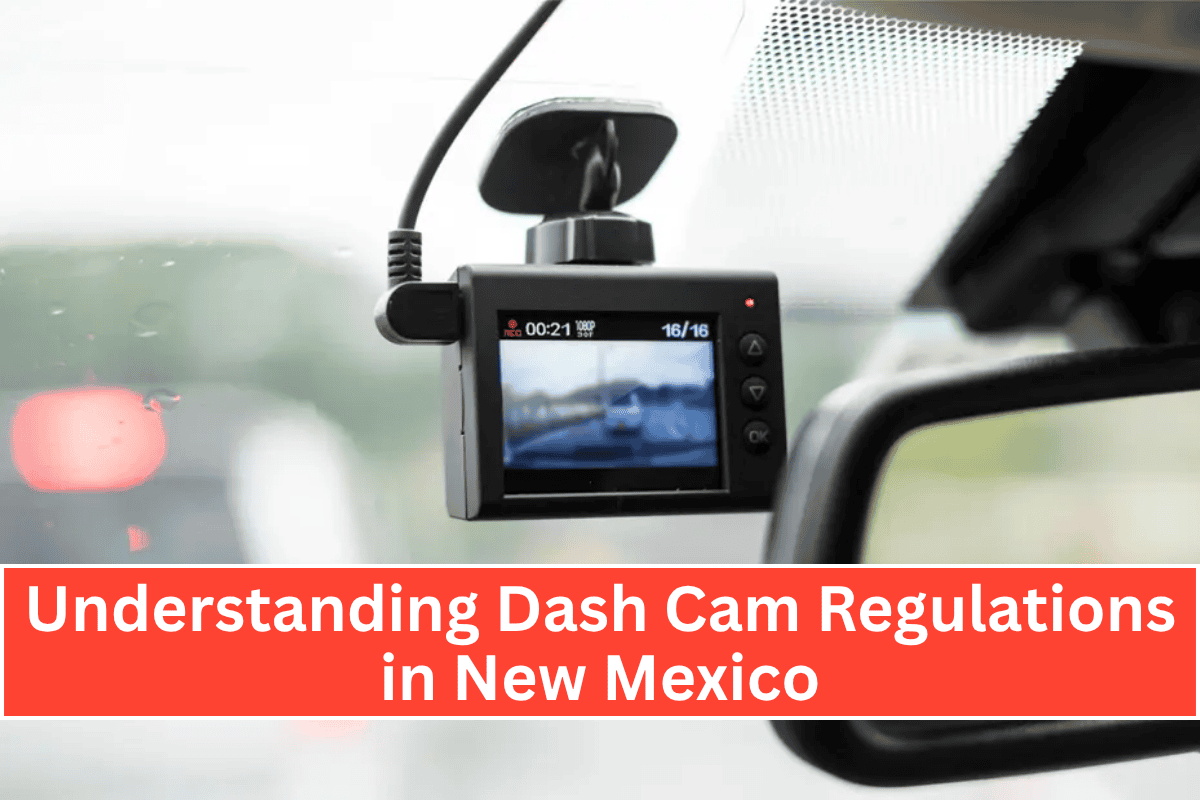Dash cams, or dashboard cameras, have become essential tools for drivers, offering protection in case of accidents, disputes, or legal issues. While they are legal in New Mexico, it’s important to understand the rules surrounding their use to avoid legal complications.
This guide will help clarify the regulations on dash cams in New Mexico, covering privacy concerns, recording laws, and how footage can be used.
New Mexico’s Law on Dash Cams: Is It Legal?
Good news for New Mexico drivers—dash cams are legal in the state. There are no state-specific laws banning dashboard cameras in vehicles. However, there are general regulations that affect how and where you can record, especially when it comes to privacy and the use of the footage.
Recording in Public vs. Private Spaces
One of the most important factors to consider when using a dash cam is where you are recording. New Mexico follows federal privacy laws, and these laws set boundaries for recording in different spaces.
Public Spaces: You can legally record video in public areas such as streets, highways, and other public places where people generally don’t have an expectation of privacy. This means your dash cam can record while driving in these areas without legal issues.
Private Property: Recording on private property, such as parking lots or private roads, can be more complicated. If you’re recording audio, you may need permission from the property owner. Always ensure your recordings on private property don’t violate the rights of others.
Audio Recording Laws in New Mexico
While video recording is usually allowed, audio recording is more complicated. New Mexico is a one-party consent state, meaning you only need the consent of one party involved in the conversation to legally record audio. In the case of dash cams:
Recording Inside Your Vehicle: If you’re the only person involved in the conversation, you’re considered the “one party,” and you can legally record audio.
Recording Conversations of Others: If your dash cam picks up conversations from other passengers, you must be careful. If you’re recording someone else’s conversation without their consent, it could be a violation of their privacy rights.
Tip: To avoid complications, consider turning off the audio recording feature on your dash cam, especially if you frequently drive with passengers.
Use of Dash Cam Footage in Legal Matters
Dash cam footage can serve as critical evidence in New Mexico, especially in accidents or legal disputes. If you are involved in a car accident, dash cam footage can help clarify who is at fault and provide valuable evidence for insurance companies, law enforcement, and even in court.
Admissibility in Court: Dash cam footage is usually admissible in court, provided it’s relevant to the case and was recorded legally. This makes it a valuable tool for legal claims.
Preserving Footage: To ensure the footage remains valid as evidence, it must be preserved according to legal guidelines. Make sure to store it properly and maintain the video in case it’s needed for a legal matter.
Dash Cam Placement
When installing a dash cam, it’s important to place it properly to ensure it doesn’t obstruct your view of the road or create any safety hazards.
FMCSA Guidelines: The Federal Motor Carrier Safety Administration (FMCSA) recommends that dash cams be placed in a way that doesn’t interfere with the driver’s view. This is important for both your safety and compliance with New Mexico road regulations.
As long as the dash cam is positioned in a way that doesn’t obstruct your view or distract you while driving, it is considered acceptable in New Mexico.
Privacy Considerations
When using a dash cam, be mindful of privacy concerns to avoid violating others’ rights.
Other Drivers: Dash cams typically record public streets and highways, but they should not be used to invade the privacy of other drivers or people. Be cautious about how and where you record.
Passenger Privacy: If your dash cam records audio or video of your passengers, it’s good practice to inform them that they are being recorded. While New Mexico law doesn’t require this, informing your passengers helps maintain trust and prevents potential legal issues down the line.
Key Takeaways for Using Dash Cams in New Mexico
Recording Video in Public: Video recording is allowed in public spaces, but avoid recording in private areas without permission.
Audio Recording: New Mexico’s one-party consent law means you can record audio inside your vehicle as long as you are part of the conversation. Be mindful when recording conversations of others.
Dash Cam Footage in Legal Matters: Dash cam footage can be used as evidence, but it must be obtained legally and preserved correctly.
Proper Placement: Ensure your dash cam doesn’t obstruct your view while driving.
Respect Privacy: While you’re not legally required to inform passengers they’re being recorded, doing so is a good practice to maintain privacy and trust.
Dash cams provide an added layer of protection for drivers in New Mexico. As long as you follow these basic rules and respect privacy concerns, you can use a dash cam legally and safely, benefiting from the security it offers in case of accidents or disputes.












